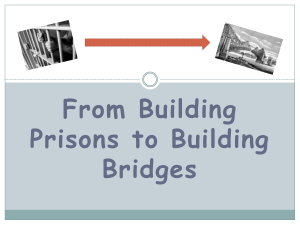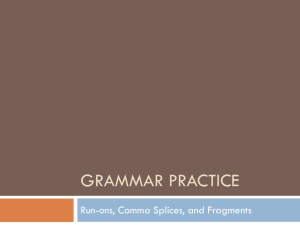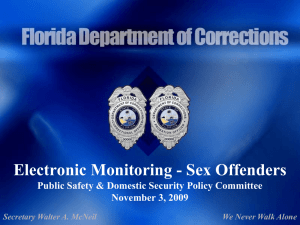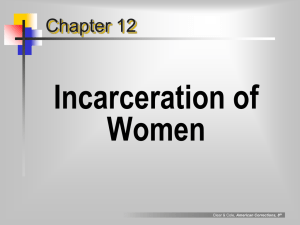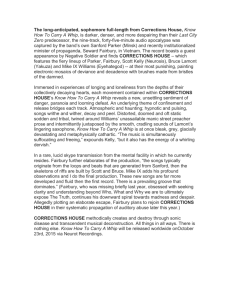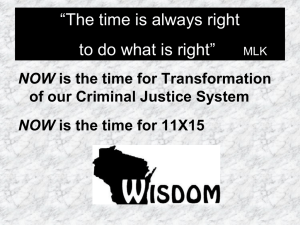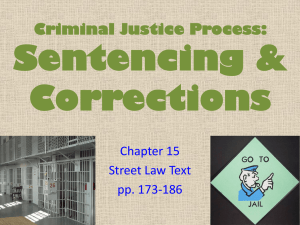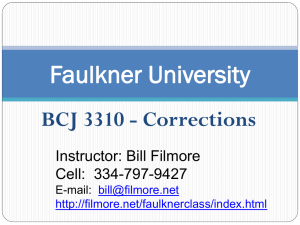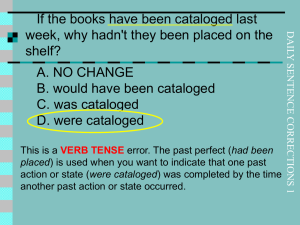Eleuthera Movement
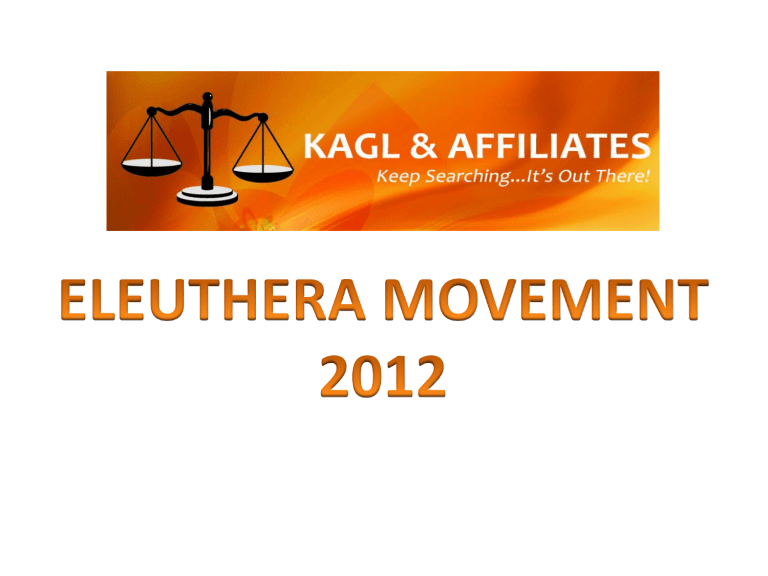
Dear Friend,
What draws you to the field of corrections? Perhaps you know a neighbor, friend, or family member that spent time in a local jail or prison.
Maybe, you are a correctional professional, or student.
After you read these pages and visit the webpage, www.kagl.info
, you will want to know how to bring freedom to communities when offenders return home.
We invite you to join in revitalizing communities!
We have friends that proclaim true freedom for offenders released from American prisons
(jails), perhaps, will face high return-to-custody rates as high as 80 percent. Eight out of ten offenders will fail parole within
12 to 36 months of release from the facility.
We have taken a deeper look into corrections’ performance and through an Eleuthera lens.
I Never Want to take freedom for Granted!
How can Eleuthera help offenders? In part, it is a framework for those with a stake in our community. The principles offered in the Chains of Eleuthera Model have been confirmed through experiences; the author has seen firsthand improvements in criminals incarcerated, and subsequently reintegrated back into society. You may not realize that by joining the Eleuthera Movement, we can truly work toward freedom in corrections and revitalize our community. But, why do we want to change corrections? One exon proclaimed gratitude at being released from prison and with literacy, work and family skills to remain a social asset.
Chains of Eleuthera Is Born
A few years ago we noted the failures of the American correctional system. We were curious that a multibillion dollar prison-industrial complex that requires corrections officers, wardens, ancillary staff as well as managers supervising public-private partnerships for food, work and education services, would confront challenges to operate efficiently.
Without realizing it, our thoughts on corrections’ performance jotted down on napkins and note pads were translated into our perspective of penal systems.
We can say that the conceptualization of Eleuthera is guided by the “what works” evidence that the
Canadians, notably Dr. Paul Gendreau, had shared decades ago .
Director Breed Supports Eleuthera
Without realizing other’s interests in the notion of community revitalizing through The Eleuthera
Movement, we embraced the written support of Special
Master Allen Breed (former Director of the Department of Corrections in California), which are captured in the book’s forward:
“ Eleuthera analyzes the importance and the ways in which collaborations between prisons and businesses can provide inmates with marketable skills which makes them contributors instead of producers upon their return to society. For sixty years, I have labored in the fields of criminal justice, as director of [several agencies], and it give me great hope to see Dr. Garth-James’s positive attitude and scholarly approach to the problems of corrections “
We Are Committed
The serious student, scholar, practitioner of corrections administration and public policy must find disconcerting the rising prison costs and poor offender community reintegration. Examine the corrections policies of tough on
crime and lock-em up and learn the public frustration. We are disappointed that last year a felon was released back into the community and Chelsa was rapped and murdered.
We are troubled that there is still much faith in locking away criminal offenders; but, not all stay behind bars. The average stay in a state prison for all felons is 2.5 years. Yes, prisons cannot hold offenders forever—certainly not anymore! This book is about helping corrections administration find a way a new organizational model that fits with new technology, cultural awareness and globalization. We remain vigilant!
Eleuthera principles:
• Nomenclature empowerment, or words used to build community,
• Character building to manifest forgiveness and compassion for victims, families and community members,
• Information-based decisionmaking and knowledge of “what works” and is worth changing in corrections management and administration; and,
• Work that is transforming to the offender and makes them producers.
Challenges
As of the writing of this book, there is still public frustration in corrections as the mandatory release of more than 1400 prisoners is upon us. After re-reading prison scholar Dr. Gendreau publications, The Effects of
Prison Sentences and Generating Rational Correctional
Policy, we gain a deeper insight into the challenges faced by corrections leadership to make (freedom) truly possible for all offenders returning home. The theme of using knowledge and evidence-based information instead of gut or political quid pro quo was particularly helpful to understanding the way corrections bureaucracies and prisons think and evolve.
The historic trade-offs of
Nothing Works, have been costly. Accountability is challenging, but corrections must be held accountable by experts, and community stakeholders.
The book aims to:
1. Share the topic of publicprivate partnerships with a zeal and offer a paradigm that can work in corrections,
2. Explain the Economics of prisons including loss of millions GDP revenue when men are locked away and not working,
3. Expose the flaws in the corrections’ model and problems with prisoner population management; advocating for strategic solutions for efficiency and effectiveness.
